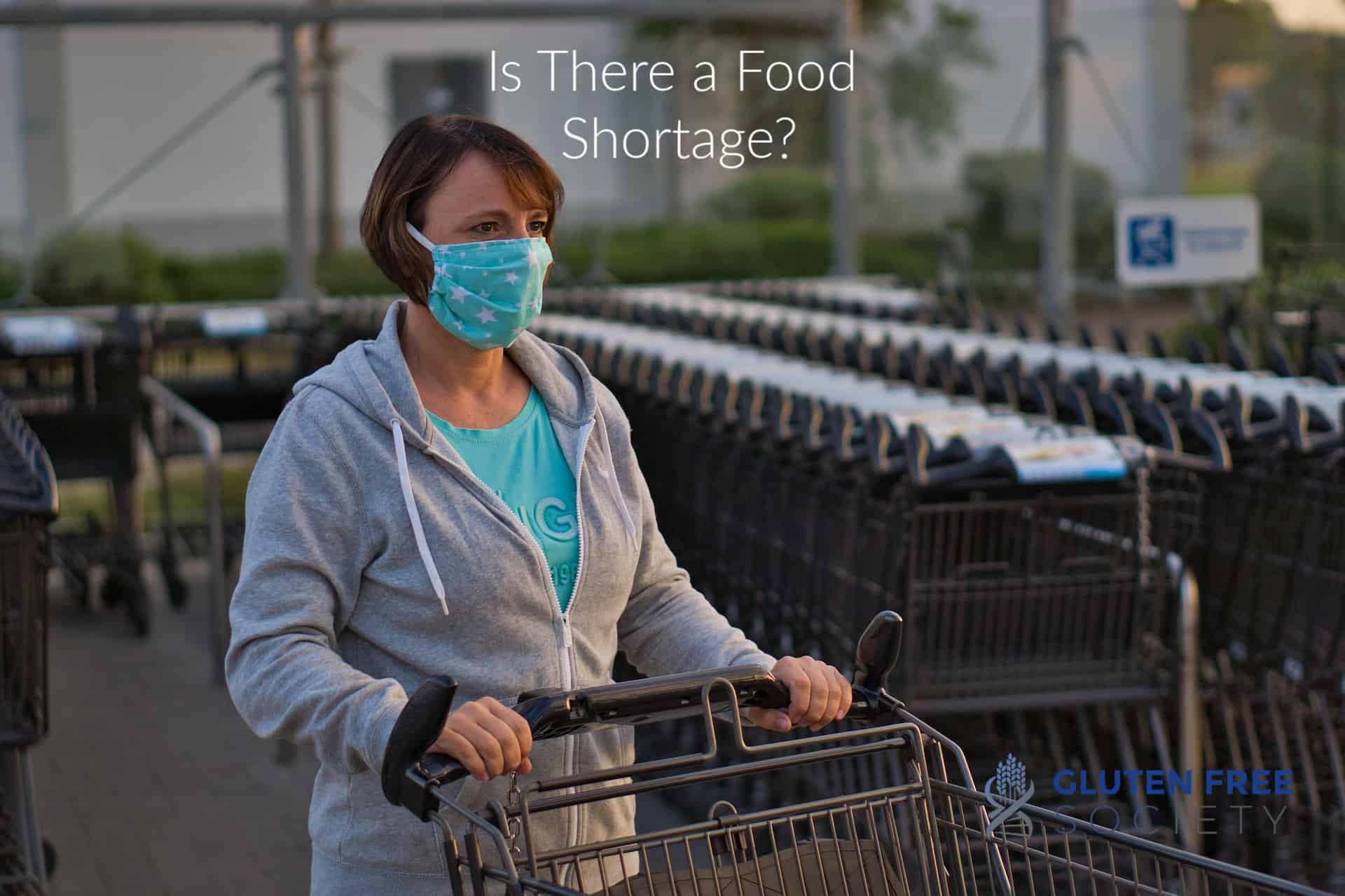We’ve all seen it. You go to the grocery store and there are several aisles of empty shelves. You may wait a few days to see if they restock and then return only to find them still bare. So what exactly is going on and why would a pandemic be affecting our nation’s food supply? With dozens of manufacturing plants closing down because of infected workers, should we be prepared for an even greater food shortage? Will empty shelves and restrictions on the number of products we can buy turn into the new normal?

Reasons for the Food Shortage
Because empty grocery stores can be quite alarming, it’s important to understand why they have become that way. First, farmers are still growing and producing crops, as well as raising livestock for consumption. However, the greatest impact of the supply has been a direct result of those who have been infected with Covid-19.
Dozens of manufacturing plants have temporarily closed down due to infected workers or a reduced workforce, from workers scared to step outside of their homes. Similarly, many of these plants must pass inspection by the FDA, or Food and Drug Administration, but with FDA workers becoming infected, the process is much slower than normal. Additionally, these products can only reach shelves through transportation by trucks and airplanes. This industry too has had a workforce that has been impacted by this virus or has faced complications with being able to cross state lines with border closings.
Further Reasons
Apart from infection, grocery stores are experiencing shortages because people are simply buying more than normal. Restaurants are closed, which not only started a down-regulation of processing food but forced those who normally eat out to start making their meals at home. With the fear of the virus and seeing the impact on stores, many people are impulsively buying more than they actually need and hoarding it at home, creating a further deficit.
A Compromised Diet & The Food Shortage
With a limited food supply, the diet of many is bound to be compromised. For those who normally choose to eat processed items, they may not see much of a difference, but for those who choose to eat healthily or must have a certain diet for autoimmune purposes, they could be greatly impacted. Food may not run out necessarily, but the availability of healthy choices has the potential to be greatly diminished.
With a poor diet comes compromised health which then impacts the ability to think clearly or intelligently to handle situations and make concise decisions. Furthermore, poor eating habits may lead to a lack of energy and therefore no capacity for exercise, getting adequate sunshine, and could cause disrupted sleep – all things that are vital for keeping the entire family healthy. Certain processed foods containing products like MSG can even act as a stimulant and migraine trigger.
Looking Ahead

While the current government bailouts seem like a necessary fix during this time of crisis, they may have a significant negative impact in the future. Currently, millions of dollars are being printed, which actually reduces the value of the dollar. With the value of the dollar dropping, the price of food could actually rise, making obtaining adequate, much less, healthy options for the entire family a struggle. This may mean that shortages or challenges buying food could be even worse in the Fall if a second wave of Covid-19 were to occur.
It’s also important to note that many large corporations, like the food chains Shake Shack and Ruth’s Chris, were beneficiaries of the government bailout intended to help small businesses. Instead of helping these smaller companies that allow the economy to keep running, money was given to corporations that one, may not need it as desperately and two, are not even producing real food, leading to further health complications.
How to Prepare for a Food Shortage
With empty grocery stores already a concern and the threat of a second wave of coronavirus occurring in the fall, it’s important to take steps now to be prepared. This doesn’t mean that anyone should run out and hoard groceries, it simply means to make sure there is enough on hand to maintain proper health. Aim for about two to three months’ worth of food and be sure to grab items that you enjoy and are naturally in your diet.
These items may include:
- Canned protein like tuna, sardines, oysters
- Dried meat like jerky
- Canned fruits and vegetables, which stay good for many years, often past their expiration date
- Fresh fruits and vegetables can be washed, cut, and frozen in a deep freezer.
- Nuts which are filling and high in fat
Further Tips
With so much time at home and a need to prepare for a further food shortage, it may be an excellent opportunity to learn about and plant a garden. This is a great way to have fresh fruits and vegetables all summer long. And, if you end up growing more than you can consume, try freezing or canning the extra produce.
If a garden is not your thing, you can always buy fruits and vegetables from bulk food stores and, again, work on freezing and canning these items, enough to get through several months. Having summer produce in the winter is always a nice treat. Additionally:
- Consider chickens. They are the gift that keeps on giving in that they are low maintenance and most provide at least one egg per day for an excellent source of protein
- Invest in a dehydrator. Not only can you dry out meats, but dried fruit is a delicious and nutritious snack.
Preparing is Not Panicking
Through all of this, it is important to never let fear take over. In a time when there are so many unknowns, it’s important to take a step back, consider what needs to be done and make it happen to ensure that your health and that of your family stays intact.
Storing up foods that you and your family enjoy means that they will never go to waste, even if shortages don’t continue. Furthermore, in your preparation, you may discover ways to better care for your family or even pick up a new hobby in canning, gardening, or raising chickens.
The post Is There a Food Shortage? appeared first on Gluten-Free Society.
No comments:
Post a Comment